CBS copes with coronavirus: “My productivity is suffering. No doubt”
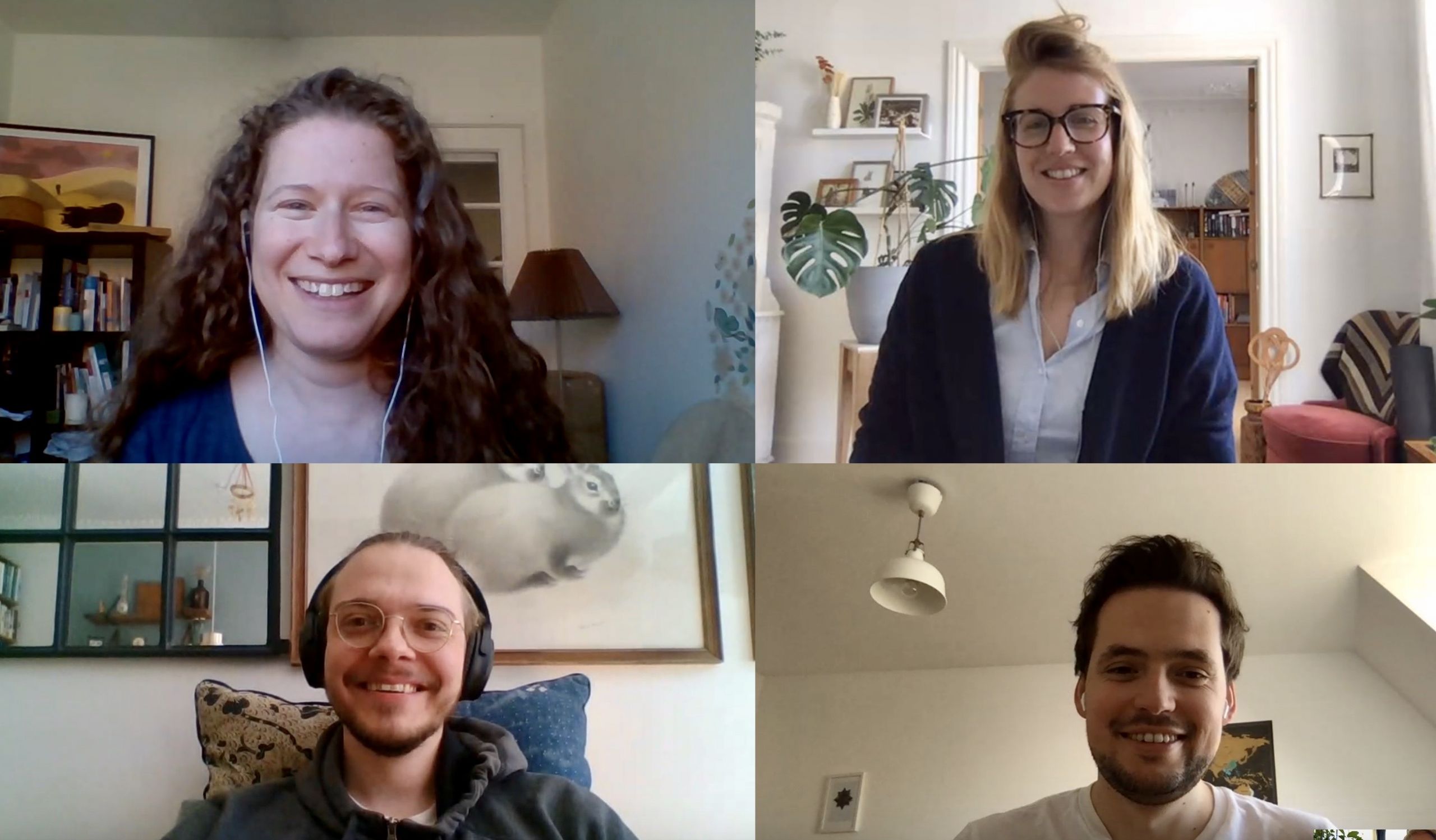
The four PhD Fellows, Tali Padan, Nicola Ens, Niels Hulgård and Christoph Viebig share how they are coping with coronavirus and lockdown. They encourage other PhD Fellows to talk openly about their struggles. (Photo: Anne M. Lykkegaard)
Four PhD Fellows share how they are coping with the current situation, including reduced productivity and the struggle to finish their degrees on time. “If you get two solid hours of work done, it’s pretty good,” says one. They share tricks on how to come to terms with not managing everything as planned – this includes avoiding productivity gurus.
The four PhD Fellows are already talking when I join the Teams meeting. In fact, they have been talking together a lot lately. About coronavirus and how it has turned everyday life upside down. How it has cancelled research stays abroad, postponed conferences and made it impossible to run lectures as planned. And how, for some, it has become evident that they will probably not finish on time as planned, and when they finally graduate, the job market will look very different.
“My productivity is suffering. No doubt, and I can’t see how I won’t be delayed,” says Nicola Ens, a second year PhD Fellow at the Department of Digitalization and Vice Chair of CBS’ PhD association PAC.
She had just gathered most of the data for her PhD and was set to visit the U.S. next semester to collect her remaining data and work on it as well. But that seems increasingly unlikely as the scope of the crisis escalates.
Tali Padan, PhD Fellow at the Department of Management, Society and Communication at CBS and Vice Chair of the PhD Committee, is in the third year of her PhD and managed to finish her data collection before the lockdown. However, not having her colleagues to talk to face-to-face has made it more difficult to move forwards.
“Before the lockdown, if I got stuck with something, it was easy to find a colleague to bounce ideas around with and get help, now everything has to be scheduled if you want to talk. And it is the small things that matter in the process of moving forward, and I feel like I’m stuck for longer,” she says and continues:
“And this is just me. I know people who also have small children at home to take care of, data collections that got cut short, and colleagues who can’t set up a proper home office. So obviously, some are more stressed than others. You could say that we are in different boats, stuck in the same storm.”
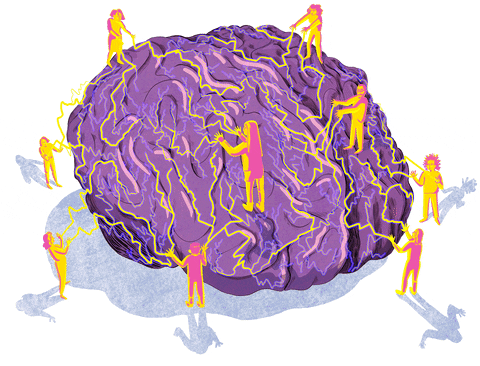
Christoph Viebig, a second year PhD Fellow at the Department of Management, Politics and Philosophy and Vice Chair of PAC, has seen some of his plans being wiped from his calendar – including an important conference he was ready to attend.
One major fear he has is that a course he was ready to teach in the next semester and use to collect data in for his PhD on blended learning has not to be fully online. Now, if the worst comes to the worst, he will have to wait an entire year before he can test some of his blended learning exercises in the course again.
“The problem is that we don’t know when this will stop, so I can’t plan anything. And it’s hard to work in this situation. Also, as a PhD representative, I hear from other PhD Fellows who are struggling with the pressure of being less productive, while also worrying about their own situation and the well-being of family members. It’s the combination that makes it extra tough,” he says.
Struggling to cope
Right now, the Ministry for Higher Education and Science is looking into initiatives to help out the PhD Fellows who are facing a delay in their studies, and PAC is collaborating with CBS’ Senior Management on how to alleviate coronavirus challenges.
Meanwhile, Niels Hulgård, PhD Fellow at the Department of Accounting and Chair of PAC, Christoph Viebig, Nicola Ens and Tali Padan have made it a mission to talk openly about how the PhD Fellows are coping – or not coping – with the new situation.
Tali Padan has been collecting stories, some anonymous, from PhD Fellows at CBS about how they are doing, their concerns and reflections during the lockdown. The stories have been shared via emails.
“People need to see that we are facing the same challenges, and they shouldn’t feel isolated. Sharing their experiences is a way to get concerns off their chests. And that is good because PhD students are usually not the first to admit if they are struggling,” says Tali Padan.
Christoph Viebig adds:
“It’s important to realize that you are not alone. And reach out to other PhD Fellows and faculty members to discuss the situation, and ask how to handle it. It’s extremely important that we support each other and show awareness,” he says.
“Acknowledge that just being human takes a lot of energy”
The four PhD Fellows are struggling in different ways, but trying their best to stay on top of the situation by keeping calm and carrying on with normal activities. For example, all of them have set up either breakfast or lunch meetings via Microsoft Teams, or made small working groups that check in on each other every day.
It’s okay not to manage everything when you’ve had to change your work life overnight
Niels Hulgård
But what seems to be one of the biggest issues is the change in productivity.
“I’ve tried to mentally trick myself. So first I acknowledge that just being human and getting through the day takes a lot of energy. And then I try not to worry about what I’m not getting done, but focus on what I do manage to achieve. I feel I accomplish more if I compare it to getting nothing done,” says Niels Hulgård.
Tali Padan adds:
“If you can do two solid hours of work, that’s pretty good. It’s unrealistic to expect to be productive for six to eight hours at a time right now,” she says.
Nicola Ens has personally had enough of all the productivity gurus on the internet.
“Don’t get too caught up in the productivity discourse. So many people are talking about the lockdown as a time where you can write a novel, read books, and take up a new hobby. Just cut through the guru garbage because it does no good,” she says and continues:
“Instead, set up routines for yourself and how you work so that the days and weekends don’t melt together. Personally, I have been very strict about taking weekends off, something I didn’t practice that much before.”
Niels Hulgård explains that he has also made a very specific schedule for himself, but points out that it’s perfectly fine if not everything on your to-do list for the day gets done.
“When I get up, I do a bit of yoga, then I have breakfast and watch the morning TV singalong with Philip Faber and get a cup of coffee with a colleague on Teams. Then I do one hour of focused work, get a good stretch, do another hour of focused work, eat lunch and so on,” he says and continues:
“If there are days I only manage to do two or three of the things, that’s okay. It’s okay not to manage everything when you’ve had to change your work life overnight.”



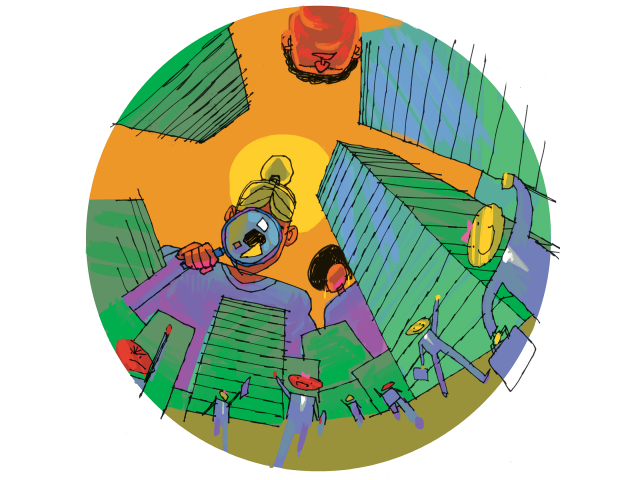
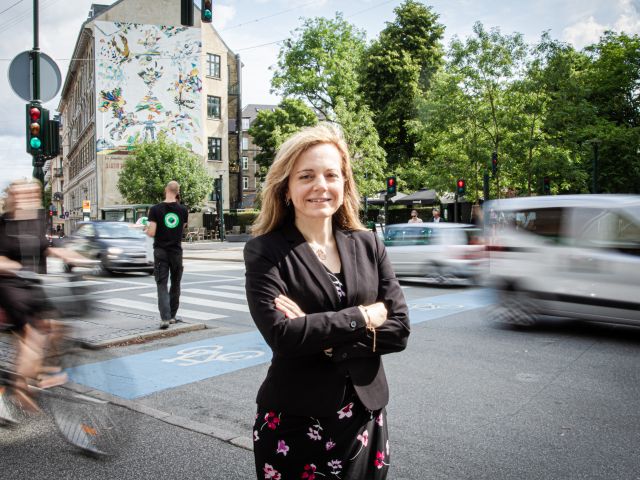
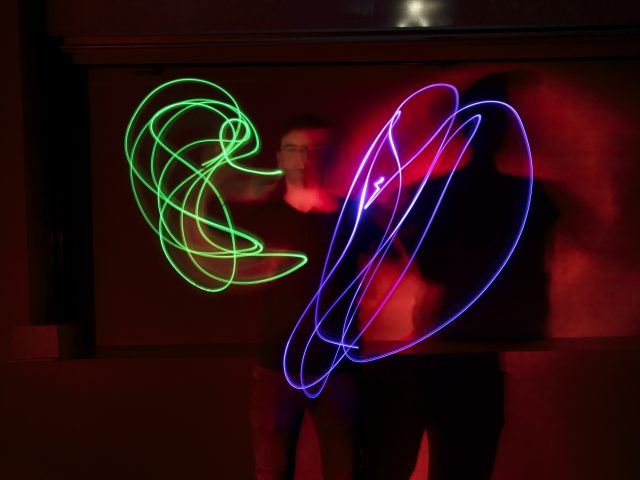
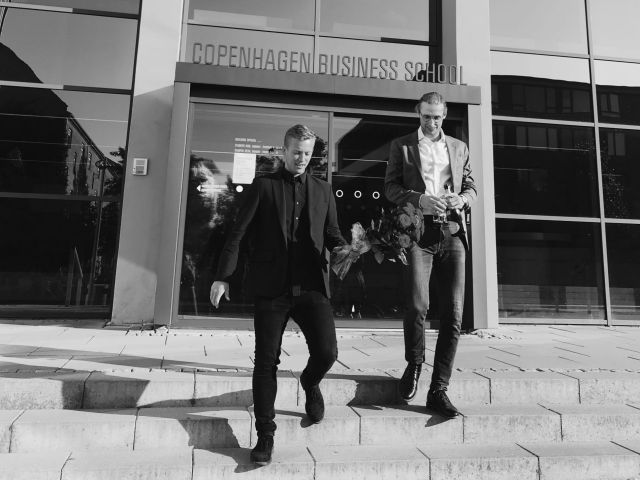
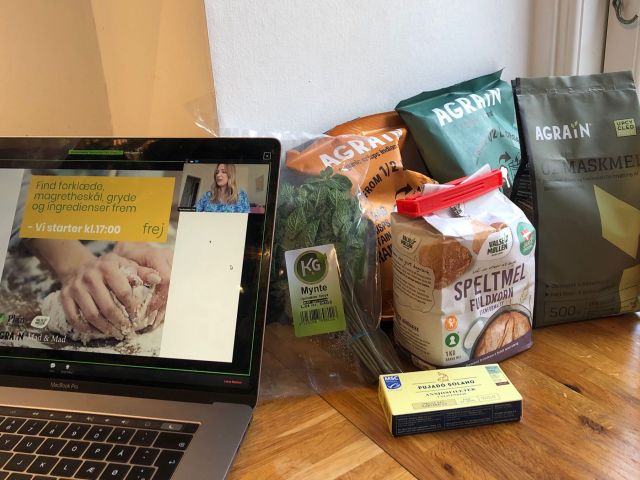

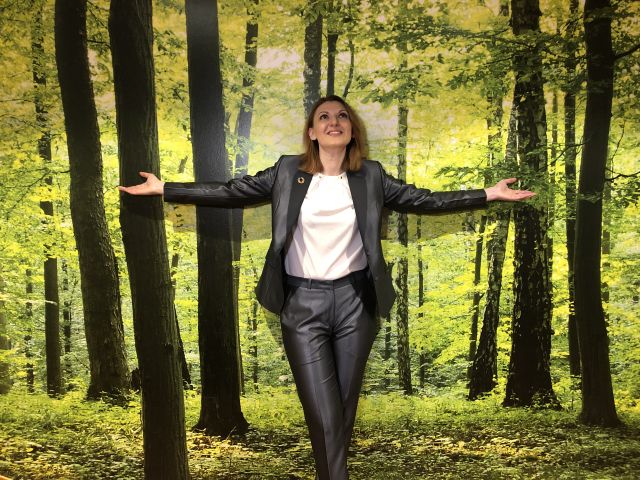




























































































































Comments